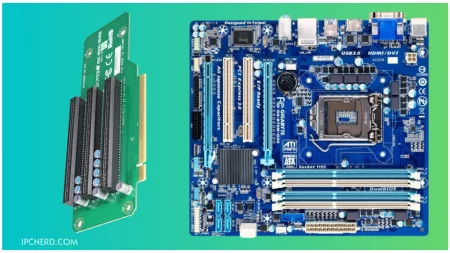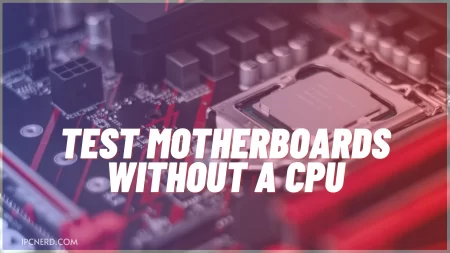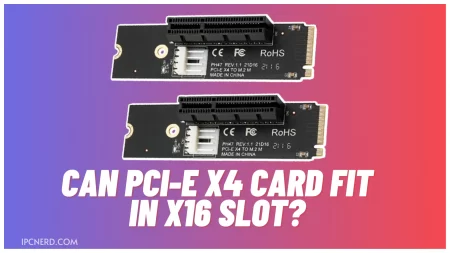With so many PC cases out there, deciding which is right for you can take time. In this article, we’ll look at the differences between some popular cases and recommend which case might be best for your needs.
How to identify your PC case

If you want to upgrade your computer or are just curious about the types of cases available, this guide is for you. This comprehensive guide will help you identify your PC case and choose the right one for your needs.
Different types of cases:
The first step is to understand the different types of cases available. There are three main categories: desktop cases, laptop cases, and gaming cases. Desktop Cases are designed for stationary computers—you can put them on a desk or shelf, but they’re not meant to move around.
Laptop Cases are specifically designed to protect your laptop while traveling or using it. Gaming Cases are built for gamers who want the best performance and hardware protection.
Here’s a quick overview of each type: Desktop Cases: A desktop case is a classic option that will work with most PCs. They tend to be more expensive than other options but offer good protection and stability.
Laptop Cases: Laptop cases come in two main types: hard shells and softshells. Hardshells are thicker and more durable than softshells, but they can be harder to get into and take up more space in your bag.
They’re also more expensive than softshells. Softshells provide better protection against scratches and dents but offer less storage space than hard shells. Gaming Cases: If you want the best performance possible, a gaming case is a way to go.
Gaming cases are specifically designed to protect your hardware and maximize performance. They can be very expensive, but they’re worth it if you want to keep your computer safe and avoid any problems.
What are the different components of a PC case?
A PC case is an enclosure that your computer system sits inside. It’s also where your motherboard, CPU, RAM, graphics card, power supply, and other peripheral components reside.
Many cases come with various features, like cable management holes, room to install multiple hard drives or fans, and a window to see your hardware while it’s in use.
The most important factor when choosing a PC case is its size. Your computer will require a certain amount of space inside the case to fit everything correctly. Make sure to measure your computer’s dimensions before shopping for a case, so you know exactly what you’re getting.
PC cases come in all different shapes and sizes, but the most popular designs are ATX and microATX. ATX cases are typically taller than wide, while microATX cases are shorter but wider. The two main types of connectors found on PC cases are Motherboard I/O and PCI slots.
Motherboard I/O slots connect peripherals such as monitors and keyboards directly to your motherboard; PCI slots allow you to add additional cards, such as graphics cards and storage devices.
When choosing a PC case, be sure to consider airflow issues. Most modern CPUs generate a lot of heat; if the airflow inside the case needs to be more adequate, the CPU will overheat and fail prematurely.
Many PC cases feature front or rear fan mounts so you can easily install fans to help cool down the system.
What to do if you’re unsure what kind of PC case you have
If you need clarification on the type of PC case you have, there are a few things you can do to figure it out. First, take a look at the exterior of your computer. It is likely a desktop case if it has a metal frame and plastic cover.
It is most likely a laptop case if it has a plastic frame and no cover. If you need to know which type of your computer has, r if more clarification, you can try looking at the manufacturer’s website or contacting them for assistance.
Another way to determine the type of PC case is by looking at the ports on the back of your computer. Desktop cases usually have more ports than laptop cases.
In general, desktop cases are more durable than laptop cases but are also more expensive. Laptop cases are less expensive than desktop ones but are less durable.
Examples of different types of PC cases
Choosing the right PC case can be a daunting task. There are so many different types, shapes, and sizes to choose from that it can take a lot of work to know where to start.
This article will discuss some of the most common types of PC cases and give examples to help you decide which is right.
The first type of PC case we will discuss is the tower case. Towers are typically taller than they are wide or deep and come in various shapes and sizes.
They’re great for people who want lots of storage space and don’t care about how their computer looks. Some popular towers include the Corsair Obsidian Series 450D and the Corsair Carbide Series 500R.
Tower cases can be a bit cumbersome because they’re tall, but they’re worth considering if you need a lot of space.
Another example of a tower case is the NZXT H440 Mid Tower Case. This case is slightly shorter than a typical tower, but it’s still quite spacious. It has three fans mounted on the front panel, which helps keep your system cool even under heavy loads.
If the size isn’t an issue, consider choosing a desktop case instead. Desktops tend to be smaller than tower or laptop cases, and they don’t have as much storage space, but they’re also easier to move around because they’re not as tall. One popular desktop case is the HP.
Conclusion
It can be tough to know which PC case to buy. With all the different brands, styles, and colors on the market, it can take time to decide which one will look best in your home or office.
This comprehensive guide has helped you figure out what kind of computer case you need and where to find it. We have also provided some helpful tips on how to pick the perfect case for your needs.
So whether you’re looking for a new workstation or upgrading your current setup, read on for our comprehensive guide!







